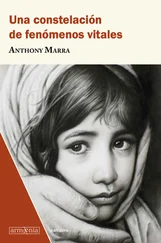Yelena’s son was able to secure employment for Vera. The job was simple enough. Once a week Ivan’s men came to her flat, and she left for the day while they worked. The men wore golden rings and black leather, carried handguns, and smoked American cigarettes. They entered with nylon duffle bags and called her babushka and did not unzip the bags until she was gone. They left dirty dishes in the sink and an envelope of money on the kitchen table. At first Vera used the time to take care of errands. Stops at the town pharmacy for medication to soothe her arthritic hands, the post office for international postage to write her daughter in America, the pastry shop for no practical reason. But as winter approached, she crossed the field that stretched from her house to Bilaya Forest.
The black earth was packed tightly, and she would follow the tree line for several kilometers before her knees began to ache. The wind carried loose bits of dirt, occasional snow flurries, the day itself into the sunset. The wolves crooned to each other from deep in the woods. When her knees began to ache, she spread her shawl across the frozen ground and sat to write. She always brought a pad of paper and a pen with her and drafted letters to her daughter. Every sentence needed to be perfect. She invented stories, plagiarized anecdotes from town gossip. She lied about herself, telling Lidiya that her pension had been increased and that she was now able to afford a color television. She wrote of compensation. Some had called for reparations for the victims of state-sponsored terror, though no one really thought the survivors would receive a kopeck, and Vera wrote that she finally would be compensated for her loss. She reread the letter as the sun sank toward the horizon and hoped her daughter would believe it.
When she returned to her home, she often found white powder on the countertops. At first she thought it was flour, but the following week the men left boxes of powdered infant formula, quinine, and caffeine. She knew what they were making, but told herself that no respectable person would be harmed. Only the wicked were affected by her complicity. One evening she returned to find one of the men still sitting at her kitchen table.
“I’m sorry,” she said, wondering at the strangeness of apologizing for entering her own home unannounced. “Am I early?”
“No,” the man replied. He was young, in his early 30s, a year or two younger than her daughter. His eyes were watery. She touched him on the shoulder, and he did not flinch. She did not know why she expected him to. Men in leather jackets were not supposed to cry.
“Would you like tea?” Vera asked. “I have a lot of sugar.”
“I must go.”
“You must stay and have tea.”
The man nodded and sat back down, the stretch of black leather squeaking against the seat of the chair. He would never know why this babushka with eyes too large for her head and pens sticking from her pockets, a woman whose naive collusion reminded him of his own mother, showed him such insistent kindness that evening. And Vera would never know that 11 hours earlier, the man had walked in on his wife in bed with another man, or that he had beaten the other man until his knuckles looked like broken raspberries, and he still did not feel better.
“I think I have cake,” Vera said. She climbed a stool and rooted through the pantry while her new kettle boiled on the gas stove. The production was larger than was required, for the cake sat in plain view on an otherwise empty shelf. She cut more generous slices than she normally would and placed them on the porcelain plates she had received for a wedding present from her in-laws. She could have cut the cake with a spoon. It was all frosting.
“Is it good? Would you like more?” she asked the man. He shook his head, his mouth full. After swallowing he changed his mind. “Yes, more please.”
What kind manners , Vera thought, as she cut two more slices. She wanted to ask the man his name. To have a man for tea and cake without knowing his name didn’t seem proper.
“Do you have any children?” Vera asked.
“No.”
“Any pets?”
“I had a cat, when I was a boy.”
“And what was its name?”
“I don’t know. I just called it ‘cat.’ Do you have any pets?”
“No,” Vera said. “I have a child.”
They ate cake and talked for two hours, and though they said nothing of consequence, the conversation felt heavy with meaning. Later, she would close the blinds and scrape the frosting from the corners of the cardboard cake box with her index finger, and then she would realize why. Never before had she invited someone for tea without wanting more than company.
“Tell me about your cat,” Vera said.
“After you tell me about your child.”
“I haven’t seen her in two years. She lives in America. Her husband’s name is Gilbert. He is a piano tuner.”
The man nodded, impressed. Vera noted the change in the man’s demeanor, something between admiration and envy in the way he bit his upper lip and leaned forward. When asked about her daughter, Vera was usually inclined to deception. She recounted her daughter’s life in America just as she wrote of her own in the carefully constructed letters she mailed each month at the town post office. With aggrandizement. With half-truths and aspirations she knew would never see fruition. But she did not fear the judgment of this sad man sitting before her, licking frosting from the back of his fork. She decided to be honest.
“She was a mail-order bride,” Vera said.
“My wife was listed in one of those catalogs.”
“She was never bought?”
The man shook his head, remembering the pixilated photograph of his wife in the third row, fourth column, and 16th page of the Russian Model Brides catalog. “No,” he said. “I was the only one who wanted her. She grew up three floors below me in the communal flat off Lenin Square.”
“She must be beautiful,” Vera said. She thought of Lidiya’s head shot, taken by a wedding photographer, the background a glitter of purple starbursts.
“Yes, she was. Does your daughter like America?”
“I don’t know,” Vera admitted. “I’ve received only five letters from her in two years.”
“America is far away,” the man said. “Much is lost in the mail.”
“Of course,” Vera agreed. She had tried to convince herself of this before.
“Tell me about her husband. What sort of man is he?”
Vera laughed and shook her head. “Gilbert? What sort of man finds his wife in a mail-order catalog?”
“One who is lonesome.”
“One who is not a man.”
“Perhaps, but what sort of woman puts herself in a mail-order catalog to find her husband?” He knew the answer, of course, and tried not to think about her.
“We would need to switch from tea to vodka to answer that one,” Vera said. “Now, tell me about your cat.”
When the man left the house later that evening, he lit a cigarette. He’d wanted one for hours, but felt uncomfortable asking the babushka for an ashtray. Snow stretched across the streets, drifts darkened by soot and shadow. The cigarette ember was the closest thing to a working streetlight for kilometers. He was afraid of going home. He was not afraid of finding his wife with the other man, but of not finding her at all. His name was Sergey Fyodorovich, and some years later, after moving to Moscow, he would be shot six times in the chest. Each bullet would miss his vital organs and main arteries, but he would still die of blood loss on a frozen patch of grass 16 blocks from the brick walls of the Kremlin. As his wounds dyed the snow red, he would remember that, as a child, he had poured his father’s vodka into the cat’s water bowl and watched the cat stumble across the kitchen floor, unable to negotiate the legs of the oaken table and metal chairs. He would regret this, and then die.
Читать дальше












